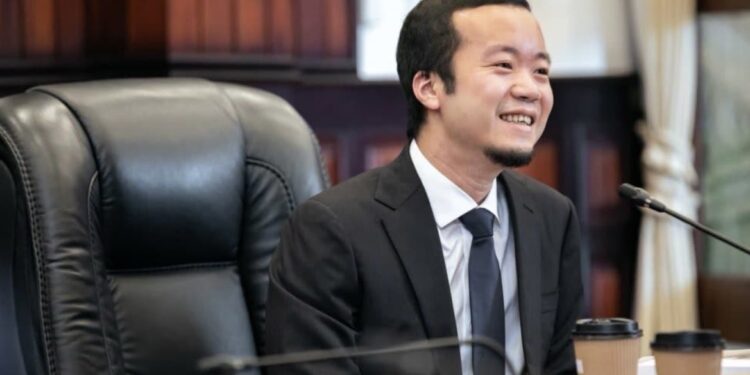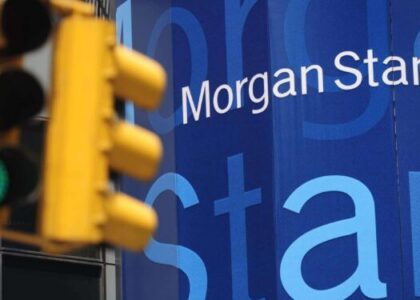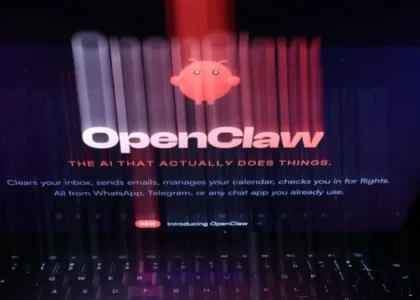Billionaire Crypto Scammer Chen Zhi Moves $1.7 Billion in Bitcoin Amidst US Hunt, Deepening Mystery Around $14 Billion Seizure
In a dramatic turn of events, Chen Zhi, the Cambodian founder and chairman of the notorious Prince Group, currently wanted by the US government for allegedly orchestrating a staggering $14 billion cryptocurrency fraud, has reportedly begun transferring over $1.7 billion worth of Bitcoin. This audacious move appears to be a calculated attempt to sever financial ties and evade the tightening grip of US justice.
On-chain data analyzed by blockchain intelligence firm Arkham Intelligence reveals that wallets linked to Chen Zhi and the Prince Group recently moved 15,959 Bitcoins from addresses previously sanctioned by the US Treasury. These funds were then dispersed into four new, distinct wallet addresses.
ALERT: CHEN ZHI, BILLIONAIRE SANCTIONED BY US & LEADER OF PRINCE GROUP MOVING FUNDS
Chen Zhi – billionaire international criminal, leader of multi-billion dollar Prince Group, and global fraudster sanctioned by the US Government has just moved $1.72 Billion of $BTC.
This may… pic.twitter.com/FT6SCTW5zh
— Arkham (@arkham) October 22, 2025
At the time of reporting, these transferred Bitcoins were valued at approximately $1.72 billion.
The US Department of Justice (DOJ) last week brought a sweeping indictment against Chen Zhi, accusing him of wire fraud, money laundering, and operating forced labor “pig butchering” scams. Simultaneously, the DOJ announced the seizure of 127,271 Bitcoins, valued at an estimated $14.2 billion, which were allegedly proceeds from Chen Zhi’s illicit activities. This monumental action marks the largest cryptocurrency seizure in US history.
According to the DOJ, Chen Zhi and his top executives secretly transformed the Prince Group into “one of Asia’s largest transnational criminal organizations.” They allegedly subjected victims of human trafficking to forced labor, compelling them to engage in “pig butchering” scams. These elaborate schemes involved establishing fake romantic relationships online to solicit financial aid or cryptocurrency investments, ultimately defrauding victims across the United States and globally out of billions of dollars.
It’s crucial to note that the recently transferred Bitcoin — the $1.7 billion — is distinct from the $14.2 billion in assets already seized by the US government. The transferred funds represent other holdings of the Prince Group. Arkham Intelligence speculates that Chen Zhi’s motivation behind this transfer is clearly to obscure the origins of these assets and break any traceable financial links to the US-sanctioned wallets.
A $14 Billion Enigma: Stolen Funds or Complicit Collaboration?
However, the narrative surrounding the $14 billion seized by the US government has taken a bewildering turn, resembling a real-life “Rashomon” mystery with conflicting accounts.
Earlier analyses by Arkham had suggested that the $14 billion in Bitcoin seized by US authorities might be the very same assets “stolen” in a 2020 hack targeting LuBia, a major Chinese mining pool.
Yet, a perplexing contradiction emerged in the DOJ’s indictment last week, which listed LuBia as a partner company allegedly used by the Prince Group to launder its illicit scam proceeds. This discrepancy has fueled considerable skepticism among observers.
Some on-chain analysts have even ventured to speculate that the purported “hacker theft incident” from 2020 might never have genuinely occurred. A more dramatic theory posits that these Bitcoins could have been “taken” directly by the US government or its collaborating cyber-operatives.
Adding to the intrigue, a recent report from blockchain intelligence firm Elliptic highlights the persistent ambiguity: “It is currently unclear how these Bitcoins fell into the hands of the US government, nor is it certain who ‘stole’ these funds from Chen Zhi and Lubian, or if a theft truly occurred.”
Further complicating the timeline, the “stolen” Bitcoin from 2020 was reportedly transferred only once after the incident, in the summer of 2024, allegedly moving into wallets under the control of US law enforcement.
Disclaimer: This article is for market information purposes only. All content and opinions are for reference only and do not constitute investment advice, nor do they represent the views and positions of Blockcast. Investors should make their own decisions and trades. The author and Blockcast will not bear any responsibility for direct or indirect losses incurred by investors’ transactions.





